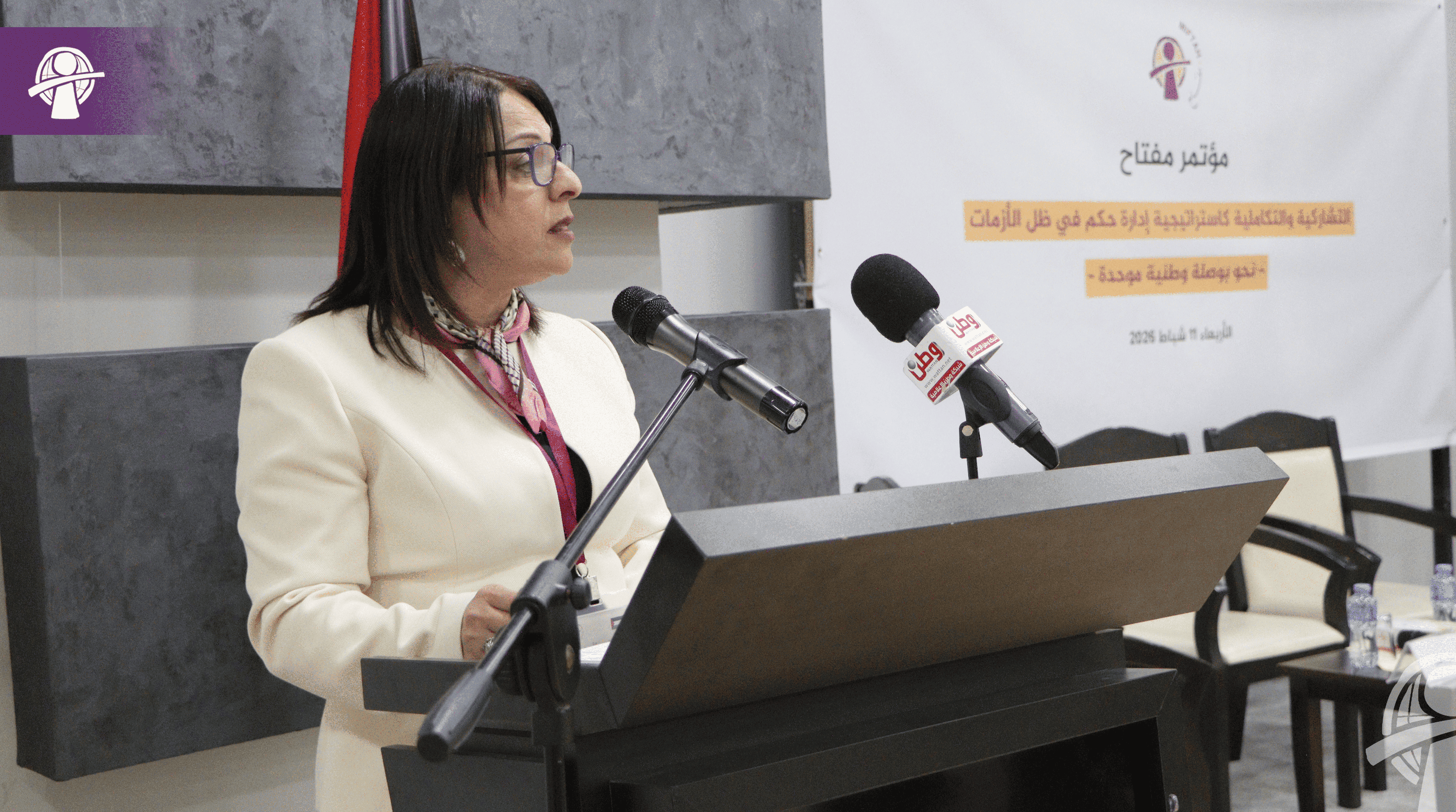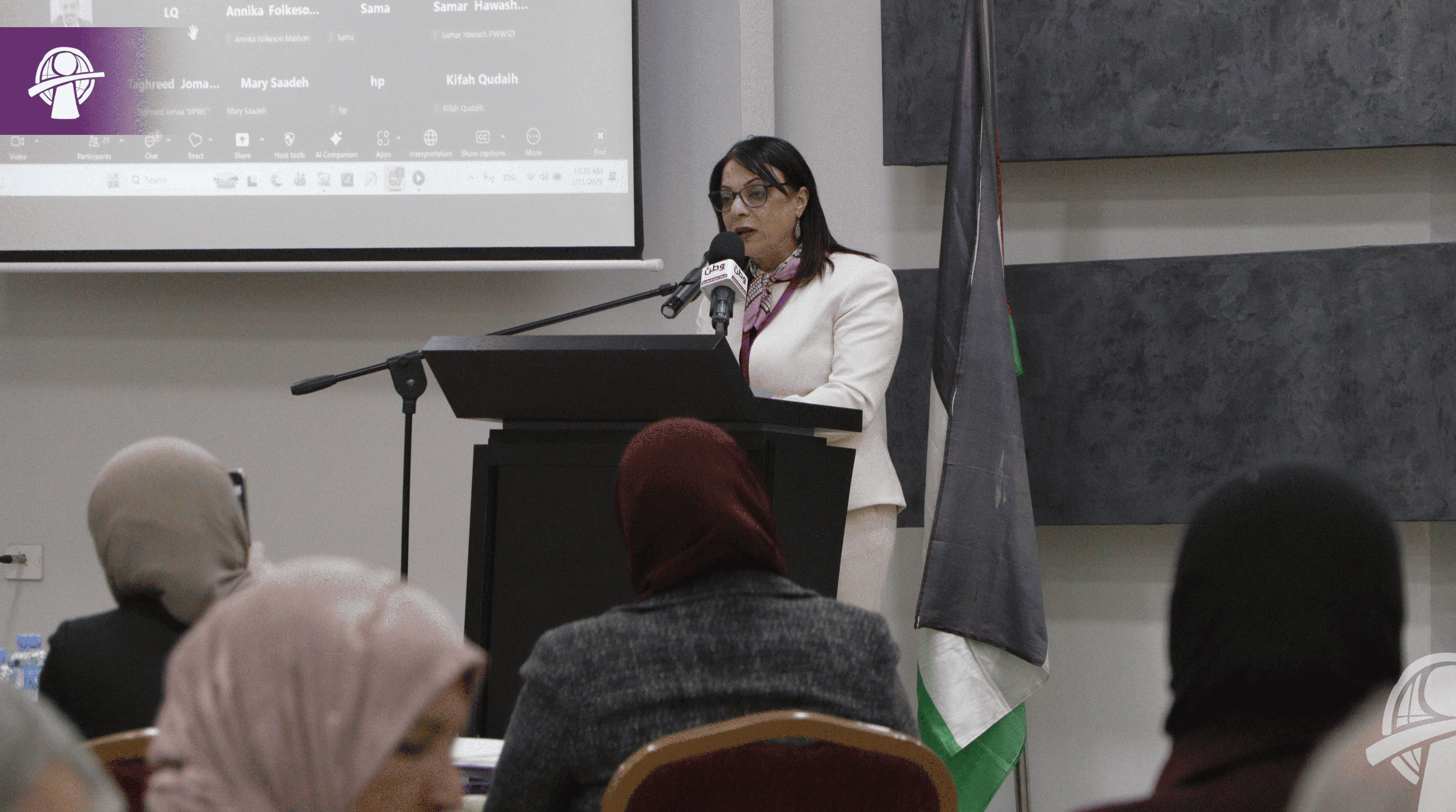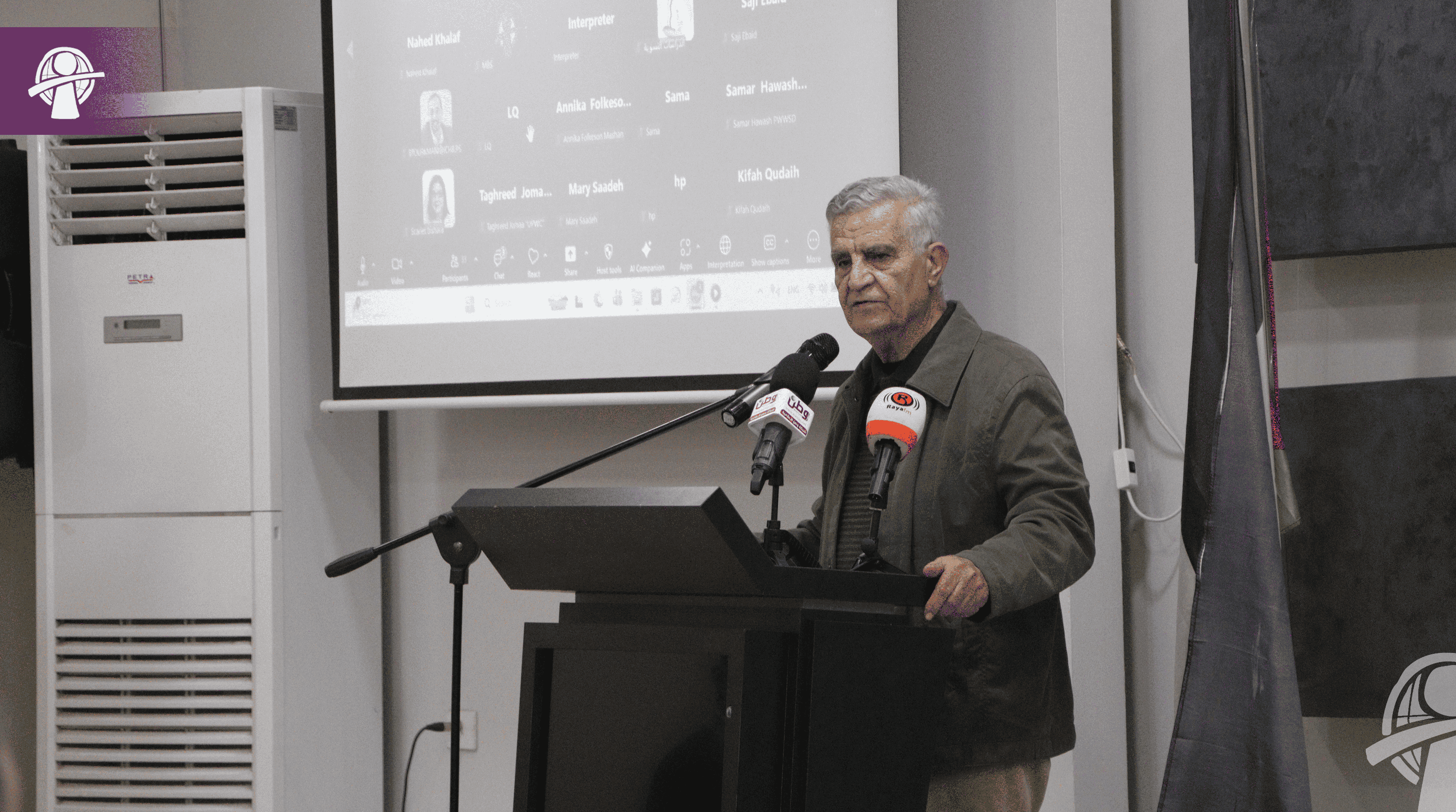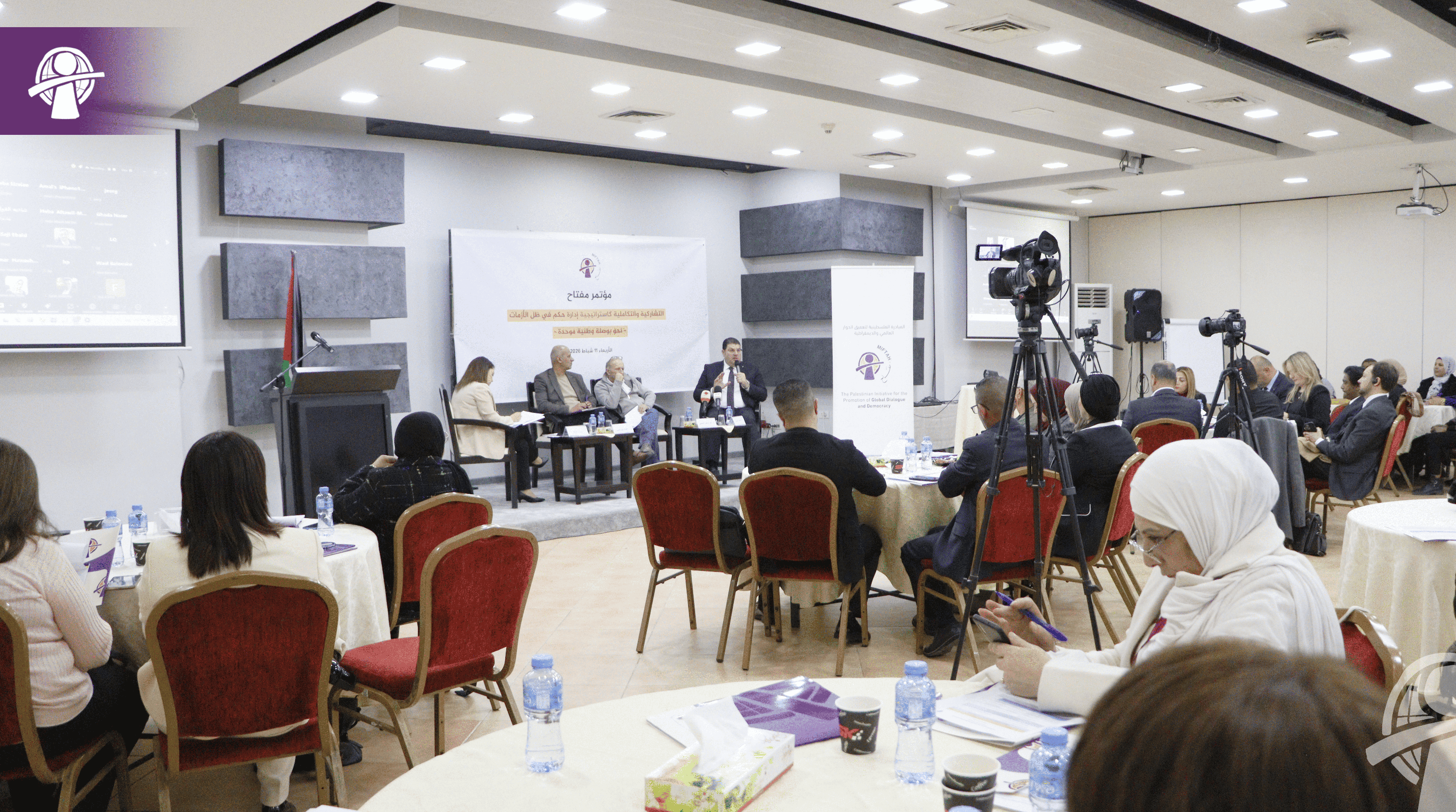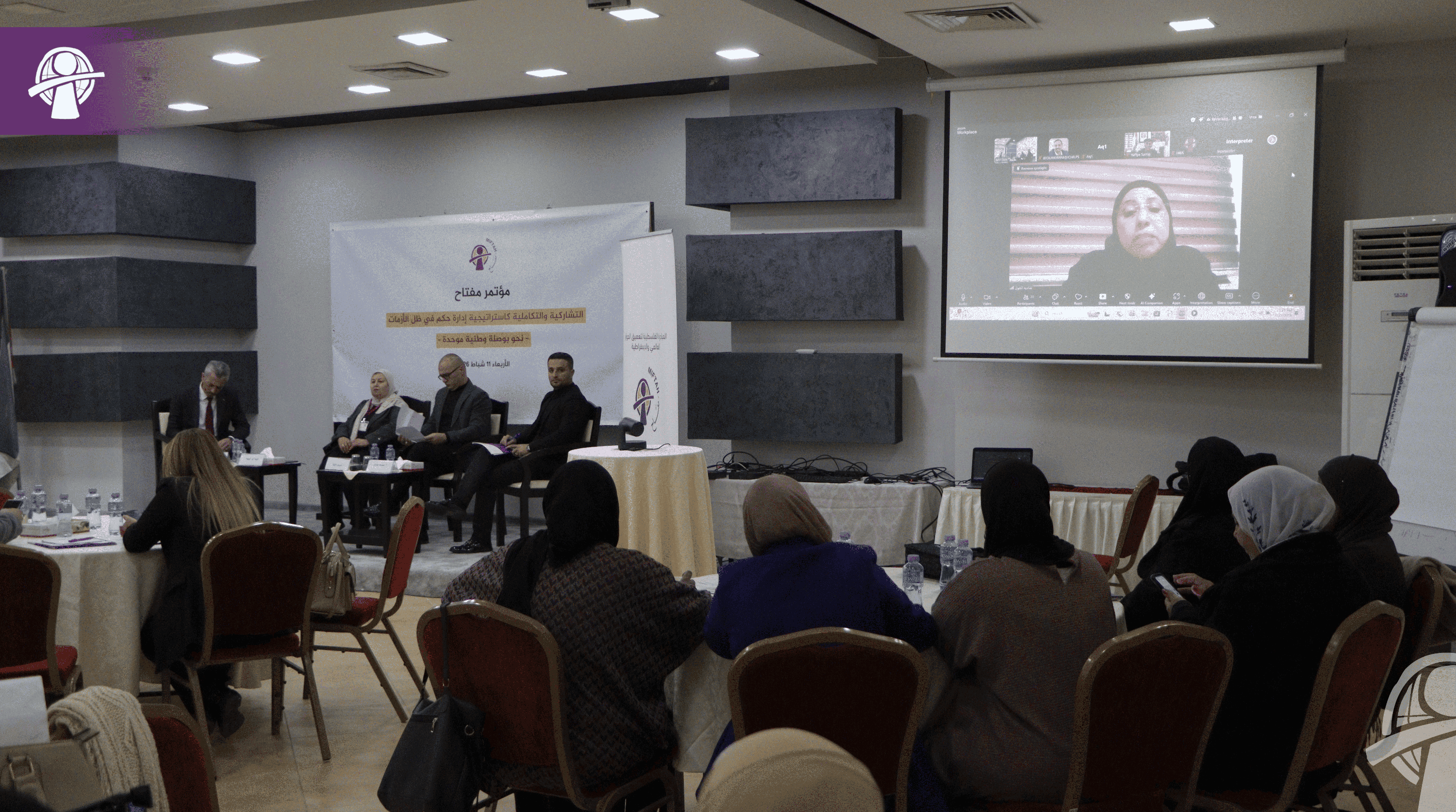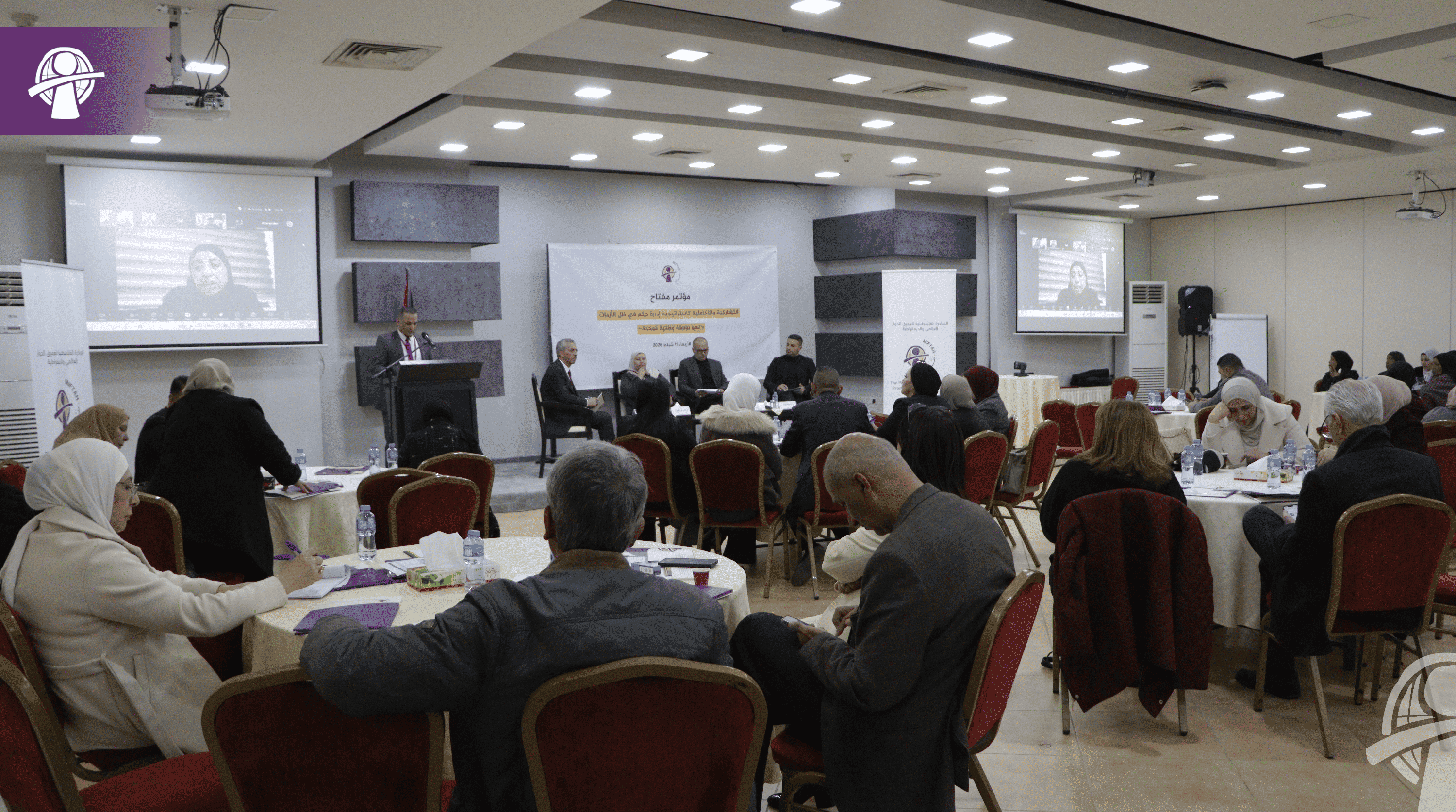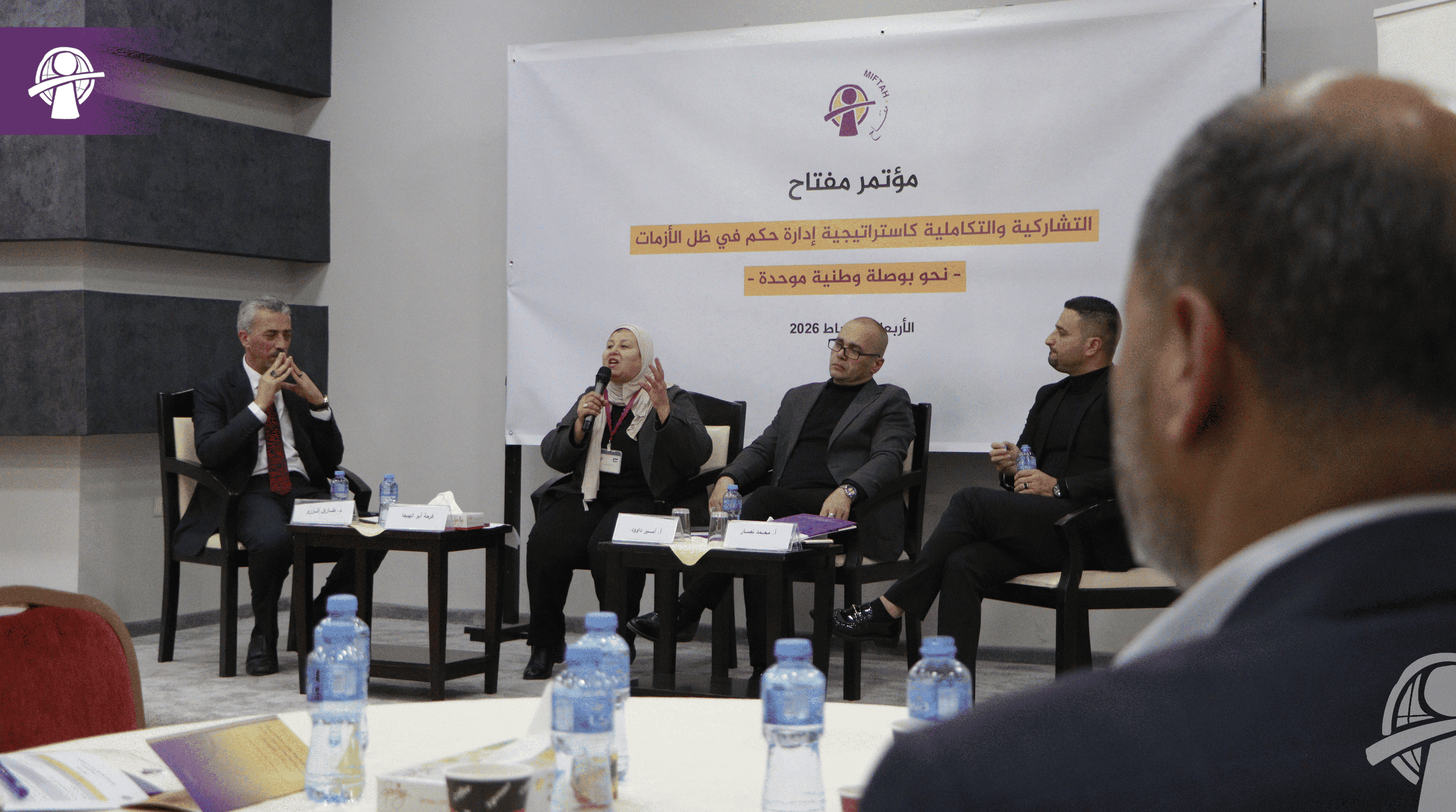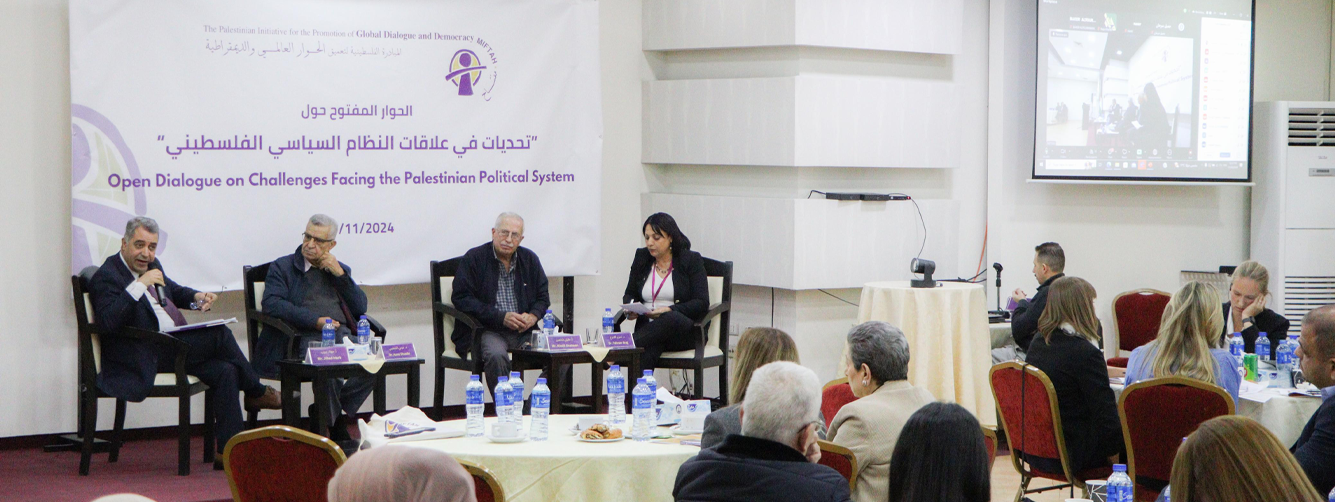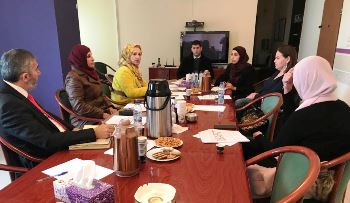
As part of MIFTAH’s approach on influencing public policies to guarantee social justice and equality, it held a focus session on policies and procedures in sharia courts regarding the termination of marriage through lawsuits of conflict and discord, according to the Jordanian Personal Status Law No. 61 of 1976, enacted in the West Bank, and Order No. 303 on the Family Rights Law of 1954 enacted in the Gaza Strip. Several sharia court professionals attended the session in addition to the Judicial Inspection Commission, the Counseling Department, the Alimony Fund, sharia and civil attorneys and the author of the paper, Khadija Hussein.
Legal procedures for separation on the basis of conflict or discord
During the session, the most significant procedures practiced in all separation lawsuits for various reasons, including separation due to harm, discord and conflict, were discussed, from the moment the lawsuit is filed through all of the judicial procedures including notification of the opposing party, convening the dispute, displaying the evidence and motives of each of the parties to the dispute and their response to it, until the sharia ruling is made. The participants also discussed procedures to appeal or oppose sharia rulings and other judicial procedures in accordance with the legal principles followed in all sharia courts.
The session also addressed the role of arbitrators in marital disputes, considering this to be a very important role in separation lawsuits for damage from discord or conflict, especially at the beginning of the intervention whereby the arbitrators seek to achieve conciliation and agreement between the quarreling couple.
Recommendations:
The session concluded with the following recommendations:
- The need to develop legislation on issues of separation due to conflict and discord and to create a unified Palestinian legal framework to be applied in all parts of the homeland based on the principle of equality in the Palestinian Basic Law and the system of international agreements, first and foremost CEDAW.
- A review of procedures for ending a marriage based on the principle of preserving the family as much as possible; such procedures need adjustment by giving at least a month to the couple before making the decision to terminate their marriage; also to take measures regarding the criteria for choosing arbitrators and determining the venue for holding their sessions in addition to means used for verifying the information provided by the couple.
- To put efforts towards establishing family counseling departments and increasing its employees and formulating a series of capacity-building interventions for them; also to ensure there are binding procedures for the validation of judges in cooperation with the family counseling department before making a final decision on any case; efforts should also be made to take advantage of Arab experiences at the regional level in terms of policies and procedures that were adopted to create these units.
- The need for the regulation of procedures regarding medical reports as a means of verifying damage or harm given that sometimes these reports are not sufficient. For example, there should be a doctor specifically for sharia courts. The national referral system should also be reaffirmed.
- To consider and adequately provide legal aid; the participants all agreed that the issue of legal aid has been neglected. A suggestion was made to set up a fund for financial aid for women to file conflict and discord lawsuits due to the rise in procedural fees, which hinders women’s access to justice.
- The need for procedures that guarantee all memos reach the judges. The participants also recommended obligatory legal reform that guarantees application and implementation and an increase in the number of judges and employees in the Sharia courts units and departments, in addition to procedures aimed at eradicating legal illiteracy in Palestinian society.
MIFTAH project manager Najwa Yaghi said the objective of the session was to consult with experts over suggestions and alternatives provided by MIFTAH, which would contribute to women’s access to justice, maintaining that these proposals came from the results of the report, “Legal loopholes in policies and procedures of sharia and ecclesiastical courts.” The report was based on a methodology of qualitative research through the analysis of enacted legislation, which regulates personal status rights and analyses the content of public polices and legal procedures for the implementation of sharia and ecclesiastical laws. It is also based on the analysis of directives issued by the Sharia Chief Justice Department for the interpretation of the law. The analysis was also based on gender tools and CEDAW to uncover the gaps in laws regulating rights and procedures for achieving justice. In-depth interviews were also conducted with several judges and lawyers in the field of sharia and ecclesiastical justice,” she said.
The session is part of MIFTAH’s efforts to support the Women’s Peace and Security agenda through interventions from its OXFAM-funded “Conflict and Fragility” project.





